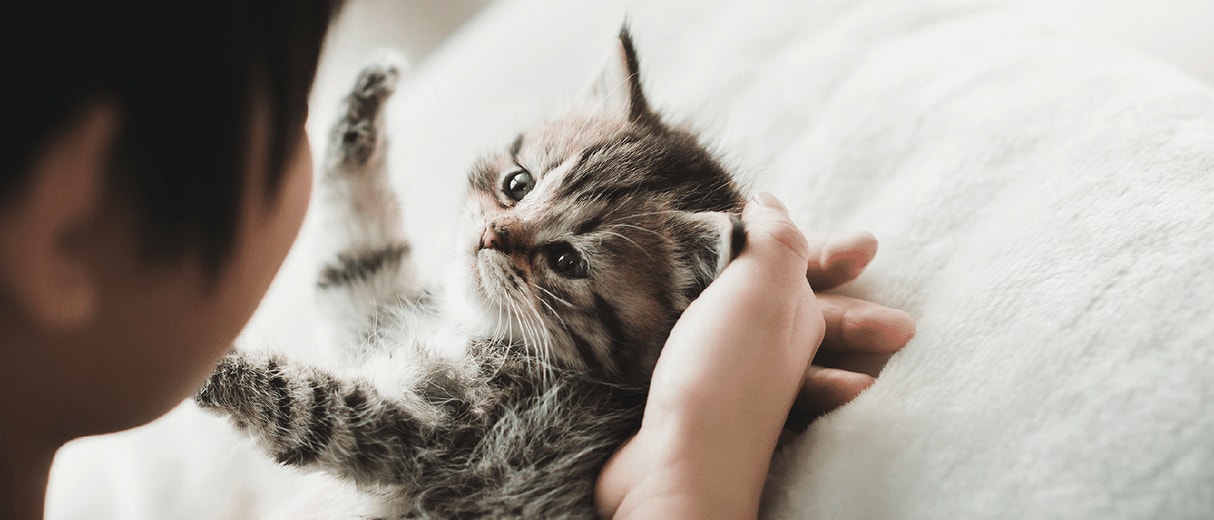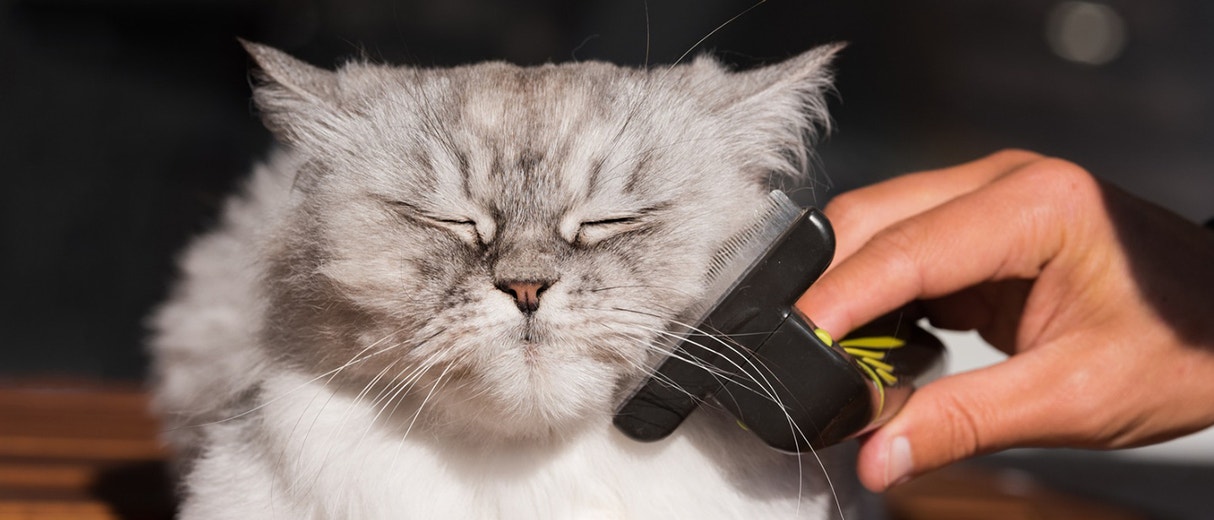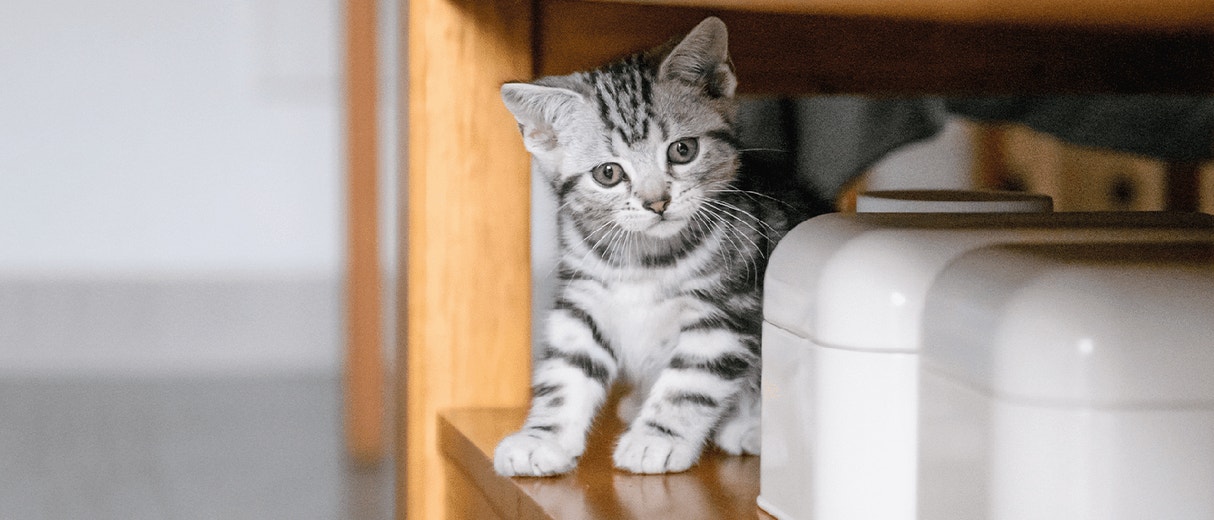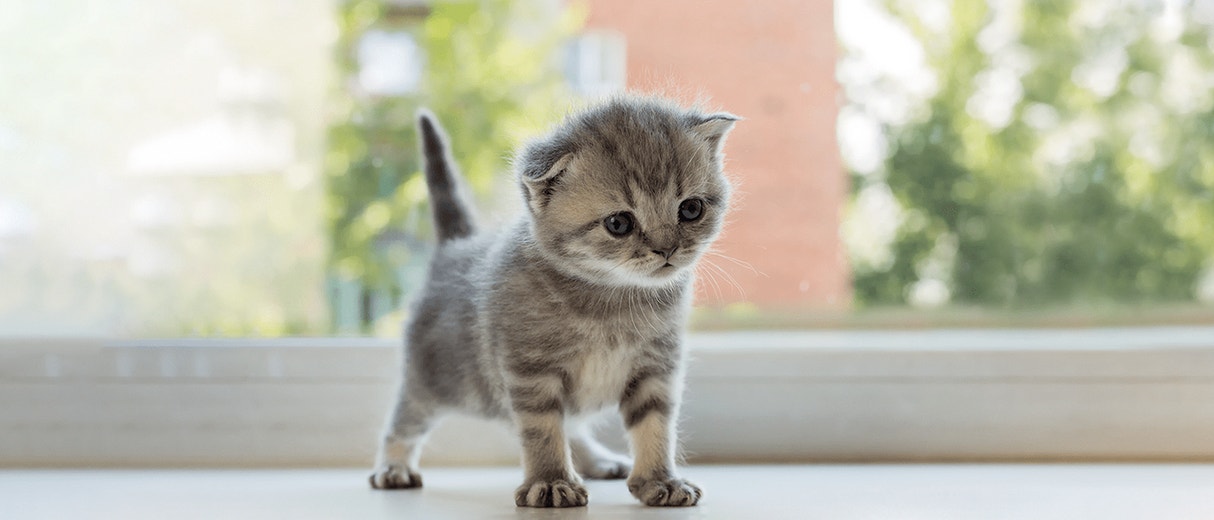
Sleeping Cat: How Long do Cats Sleep?
Kittens love to sleep. In fact, most cats will sleep anywhere from 13-16 hours a day. The reason is simple: meat is a rich source of energy, and sleeping after each meal allows that energy to be conserved.
So, next time you catch your kitten napping, remember that she’s not being lazy. Instead, your feline friend is mimicking the natural behaviour of her big cat cousins, making sure she’s restored and ready for the next hunt!
How many hours do cats sleep?
How many times have you found your little furball all curled up in unlikely places, lost in deep slumber? And how many times have you stared at your sleeping cat in wonder and sighed with envy that you can’t sleep such peacefully? If you have been a cat parent for long, the answers to both questions would probably be ‘numerous times.’
So, how long do cats sleep or how many hours cat sleep? While it seems like they are asleep for the whole day, fur kiddos generally sleep for 13 to 16 hours a day, with come sleeping even more than 18 hours. With age this duration increases and you will find your elderly furry sleeping more hours than they did as kittens.
What is a Catnap?
Cats usually doze off multiple times during the day instead of having a long sleep like us humans do. This is why you will find your fur baby stretched out in one place and then curled up in another throughout the day. The term ‘catnap’ was coined taking into account this sleeping pattern of cats and it essentially means taking short bouts of naps during the day, just like your sleeping cat.
Cat's Sleep Cycle
Cats, like humans, also follow a circadian sleep rhythm, but their sleep cycle is very different than ours. Humans have a diurnal sleep rhythm, which means we sleep at night and stay awake during the day time. Whereas felines follow a crepuscular rhythm, which makes them most alert just before the daybreak and right after nightfall. Researchers believe this might be caused by the wild cat’s predatory nature where they can hunt diurnal birds and nocturnal rodents during their peak alert times.
When should you be concerned about your Cat’s Sleep?
There can be several reasons for a change in your cat’s sleeping patterns. Your furball may sleep longer after an extensive playtime or extended sleeping can also be the result of stress caused by moving house or addition of a new family member. As long as their excessive or decreased sleep hours is temporary and are not accompanied by other symptoms such as sudden weight loss/ gain, altered bathroom habits, or disorientation, they should be fine. However, change in sleep patterns can also mean the following, especially when accompanied by other signs.
Prolonged sleeping can mean -
- Kidney problems if accompanied by loss of appetite, increased thirst, and more vocalisation at nights.
- Hypothyroidism if your fur kid also seems to be losing hair and is uninterested to eat.
Reduced sleeping can mean -
- Hyperthyroidism if they also have symptoms like increased appetite accompanied by weight loss and excessive excitement.
- Feline immunodeficiency virus if you see your fur kiddo not sleeping well for a long time.
To be on the safe side, you should consult your vet and get your cat’s health checked if you observe any unusual sleep activity and are concerned about your fur baby not sleeping well.
FAQ for Cat's Sleeping Habit
-
Can you toilet-train a cat?
Yes, it is possible to toilet-train your cat. With patience and by following the right methods, you can train your kitten to use the toilet and keep it clean too! But it might take a little longer than litter training.
Do you have to train a cat to use the litter box?
Yes, a cat needs to be trained to use the litter box. Generally, a kitten learns from its mother to pee and poop in the right place. But you too can train your cat by getting them used to the litter box.
How can I train my cat to use the litter box?
- Keep the litter box in a proper place
- Put enough litter in the litter
- Put the kitty in the box so that it gets accustomed to the litter box
- Try making changes to the litter box if the kitty doesn't use it
How long does it take to train a cat to litter?
Kittens have to be placed in the box many times for several days to get an idea of the litter box. It might take longer to train adult cats. On average, it takes around 4 weeks to train a cat to litter.
What is the fastest way to litter train a cat?
The fastest way to litter-train a cat is to start training it when it is still a baby. Kittens are quick learners and less fussy about their preferences. Use positive reinforcements such as treats and cuddles to train them easily.
Is it cruel to keep cats indoors?
Indoor cats often lack the freedom enjoyed by outdoor cats, which may cause them to feel irritated or upset. However, being indoors significantly eliminates the risks to their health. Just make sure to keep them stimulated, well fed and hydrated.
Are outdoor cats happier than indoor cats?
Outdoor cats have easy access to go on wonderful adventures and exercise their freedom. Hence their curiosity and sense of self are more prominent and satisfied. In comparison, indoor cats often feel restricted, causing them to be irritated or upset, creating a stark difference when it comes to indoor vs outdoor cats.
Is it ok to have an indoor-outdoor cat?
Confused with indoor cats vs outdoor cats? It is natural for your indoor cat to want to go on outdoor adventures. It is okay to have an indoor cat who enjoys going outside but make sure that your kitty is regularly checked out for diseases and parasites.
Is it better to have an indoor or outdoor cat?
Indoor vs outdoor cats have their fair share of strengths and weaknesses. However, when it comes to the general health and life expectancy of cats, indoor fur babies tend to be healthier and live much longer than their outdoor counterparts.
Should I kitten-proof my balcony or window?
You can take steps like keeping cotton drapes and blind cords out of your fur baby’s reach, keeping windows and balcony doors closed unless the kitten is being supervised, and ensuring that plants toxic to cats aren’t within their reach.
How do I kitten-proof my home?
Some crucial first steps of kitten-proofing homes are:
- Keeping doors and windows locked
- Having protective covering on wires and vulnerable furniture like sofas
- Keeping small objects off the floor
- Never leaving food uncovered
- Using childproof latches on cabinets
Is kitten-proofing my house necessary?
If you are thinking of getting a kitten, definitely! You would want to create a safe cat house for your new furry friend and also protect your household goods and furniture from curious kitties. Kitten-proofing your home ensures both.
Do cats fake sleep?
Yes, they do. Cats fake sleep for a number of reasons such as when they are stressed or looking to get some pets from you.
Do cats care if you sleep with them?
Most cats love co-sleeping with their humans and they will happily snooze curled up beside you or on your lap.
Is a Cat Always in Deep Sleep?
Cats deep sleep for about 1/4th of their sleeping hours with the rest 3/4th dedicated to light sleeping or just snoozing. During light sleep, your furry friend is still resting, but in an alert state.
How many hours does a cat sleep in a week?
In general, cats sleep for around 13-16 hours per day, but this duration can extent to over 18 hours in some cats. So, how long do cats sleep in a week? Well, cats sleep a whopping 91 to more than 126 hours per week!
Do Cats Dream and Snore?
Yes, cats dream and snore. You will find your sleeping kitten twitching, moving their paws, making noises, and stretching. They can also snore when deeply asleep. Snoring is normal as long it’s not accompanied by other problems like sneezing, nose or eye discharge, coughing, or appetite changes.
How do I calm my cat to cut its nails?
While most cats are tolerant of having their nails cut by someone they love, it is always a good idea to reward them with cat treats or shower them with affection, helping them calm down while you trim their nails.
Do cats get mad when you cut their nails?
Trimming nails can make cats uncomfortable and fussy. So, avoid cutting cat nails when they are playing or stressed. It is important to give your kitty a nail trim once it is relaxed and comfy, like right after their mealtimes.
What happens if you don’t trim your cat’s nails?
Once it grows too long, your fur baby’s nails can curve and grow into their soft paw pads, causing immense discomfort and pain. Failing to make sure to cut the cat’s nails also significantly raises the risks of bacterial infection.
Is it necessary to trim a cat’s claws?
No, it is not always necessary to cut cat nails unless they have grown too long. Cats rely on their claws for multiple purposes like climbing and marking their territories, making it a significant limitation of cut cat’s nails.
Do cats realise their claws hurt?
As kittens, felines are used to rough play which often includes playfully scratching and biting their loved ones. However, they do not always realise that their claws can hurt their favourite humans, however innocent and loving their intentions may be.
Do cats remember their owners when alone for a few days?
Cats are territorial and independent, but they are also incredibly affectionate and loving and miss their loved ones in their absence. So, you do not have to worry about your cat forgetting you when left alone for a few days.
Can I leave my cat alone for a few days?
While it is not recommended, you can leave your fur kiddo for 2-3 days alone at home without any supervision. Just make sure there are sufficient food, fresh water, and litter tray with enough litter available at their disposal.
What can I do with my cat when I go away?
To ensure your fur buddy stays healthy while you are away, you can opt for a cattery or cat-sitting service. Also, remember to take the necessary measures to make sure they are well-fed and hydrated while you are away.
See More Articles Like This




